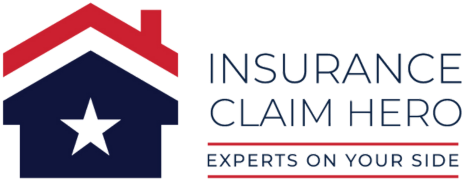Mr. Merlin –
I enjoyed your post from last month and as a newly minted public adjuster, I have to agree. Public adjusters hold a very important job and raising the bar for entry would certainly elevate the professionalism of the in industry. But I think the entire insurance claims sector, including insurance carriers, public adjusters, and attorneys could all step it up quite a few notches.
It’s estimated that 3.5 million insurance claims are filed annually – and the vast majority of those are settled with 0 representation whatsoever – no attorney or public adjuster. Most people have never heard the term “public adjuster” in their lives before! Lawsuits are intimidating for the average person, so attorneys are only involved in a small percentage of claims. The first priority here needs to be awareness. At the very least, homeowners need to know that public adjusters are an option and what the pros and cons are to each option.
A major concern about raising the barrier to entry for public adjusters is that it will limit the overall quantity of insurance claims that are represented by an informed, educated, and motivated professional. We need more people on this side of the industry, not less. The biggest insurance law firm is still tiny compared to an insurance mega-corporation. Raising awareness about homeowner rights during an insurance claim process is huge – and having more public adjusters out there definitely helps.
I took an interest in the Texas Code of Insurance while dealing with my own homeowners insurance claim and as a result I now have a much greater appreciation for the law. This passion for upholding my legal rights is what’s pushed me to get my own public adjusting license. There’s something beautiful about committing something to words, and I love that the law governs and protects the public adjusting service. The fact that public adjusting exists acknowledges that some claims are better handled by professional public adjuster.
Its important to remember why public adjusters exist in the first place. Here’s what I believe to be the value proposition for public adjusters:
- Most homeowners are uninformed about insurance policies and applicable laws.
- Insurance companies make billions of dollars annually and pay their CEOs millions.
- Having an expert negotiate an insurance claim generally results in better settlements for the insured.
- Attorneys can get you a high claim settlement, but it’ll generally take longer time and cost you up to 40%.
- Public adjusters can be a quicker and more inexpensive option for a homeowner to still have an advocate in the claims process.
There are good and bad versions for everything in life. Good doctors and bad doctors. Good pizza shops and bad pizza shops. Good attorneys and bad attorneys. If we raised awareness about the public adjuster option, it would help American homeowners understand what they should be looking for from a public adjuster. The solution is not to make it harder to get a public adjuster license, the answer lies in teaching the general public about this option. Increased homeowner knowledge will lead to a more competitive public adjusting industry, forcing weaker, less professional adjusters to evolve or exit the industry.
I also found the Steve Badger LinkedIn post you shared quite interesting. In there, it mentions:
“Shouldn’t public adjusters be held to similar educational requirements, licensing, standards of conduct, and ethical rules as lawyers?
Question: If the requirements for being a public adjuster were the same as becoming a lawyer, why would the compensation be any different? In the state of Texas, public adjusters are capped at a 10% contingency, while insurance law firms charge up to 40% of a claim settlement to handle an insurance claim. If public adjusters can only charge 1/4 as much as lawyer, then the requirements to be a public adjuster should be 1/4 as challenging.
Frankly, the 10% cap limits the resources available to public adjusters, which likely has an impact on the degree of professionalism you may perceive. Think of a tiny law firm, now give them 1/4 of the budget. That’s what public adjusters have to work with. Complex claims can be resource intensive and require “over a dozen specialized fields”, but public adjusting firms just don’t have the same resources available.
All this said, I do agree that anyone handling an insurance claim should be a committed professional. They should be passionate about what they do, and a firm advocate of the homeowners they represent. I hope that by raising public awareness surrounding the public adjusting industry, we see more qualified and professional adjusters join the field.
Insurance is a contract, not a favor.
FAQ
A public adjuster is a professional who represents homeowners and policyholders in negotiating and settling insurance claims. Unlike adjusters who work for insurance companies, public adjusters work on behalf of the insured to ensure fair settlements.
Most homeowners are unfamiliar with the intricacies of insurance policies and laws. Public adjusters bring expertise and advocacy to the table, helping to secure better settlements and guiding homeowners through the complex claims process.
In Texas, public adjusters are typically compensated through a contingency fee, capped at 10% of the claim settlement. This is significantly lower than the fees charged by insurance law firms, which can go up to 40%.
The discussion suggests that raising the bar for entry into the public adjusting profession could elevate its professionalism. However, there is concern that higher barriers could reduce the number of professionals advocating for homeowners.
Increased awareness can educate homeowners on their rights and the benefits of having an advocate during the insurance claim process. It could lead to a more competitive industry, with a higher standard of professionalism among public adjusters.
The Texas Code of Insurance governs and protects the public adjusting service, acknowledging that some claims are better handled by professionals. It sets the legal framework within which public adjusters operate.
The current 10% cap limits the resources available to public adjusters, potentially impacting the level of service and professionalism they can offer. Adjusting this cap could enable public adjusters to better serve their clients with more resources.
Equating the requirements could question the disparity in compensation. If public adjusters were subjected to the same standards as lawyers, it would make sense for their compensation to reflect the level of their expertise and responsibility.
The cap on contingency fees restricts the budget available to public adjusters, making it challenging to manage resource-intensive complex claims with the same degree of professionalism as law firms with larger budgets.
Raising public awareness about the role and benefits of public adjusters, along with encouraging a competitive industry that rewards expertise and professionalism, could lead to an increase in qualified and passionate professionals in the field.




